Some of us want to believe that love alone is enough to make things work out, but sometimes the challenges are far more complicated. Especially when disability, caregiving, and parenthood all intersect, families can find themselves split between protecting someone they love and respecting their choices.
That’s exactly the struggle in this story. Today’s Original Poster (OP) shared that her cousin with significant cognitive disabilities is about to become a mother, with her own mother cheering her on, but not everyone in the family shares that excitement. After she refused to support it, she found herself being called cruel for it.
More info: Reddit
Family can be one of life’s greatest sources of love, but it can also be the center of our toughest dilemmas
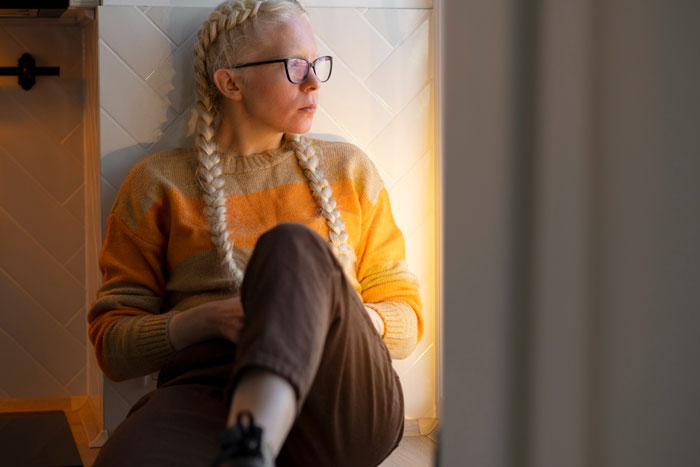
Image credits: freepik / Freepik (not the actual photo)
The author’s cousin, who has significant cognitive disabilities, married a man with similar challenges after meeting in a support group
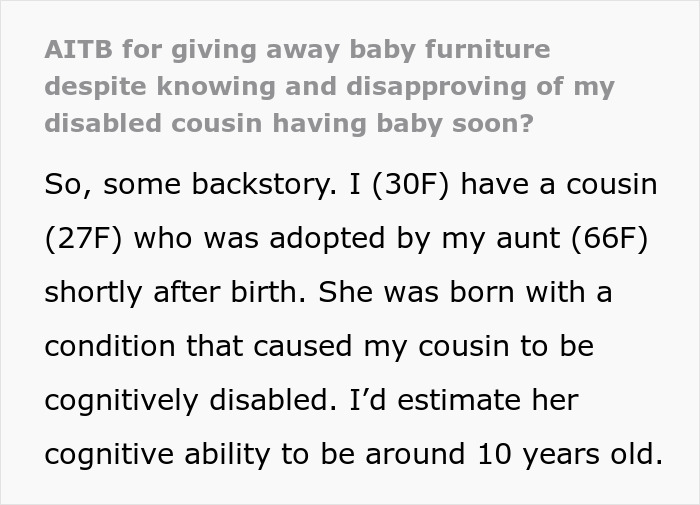
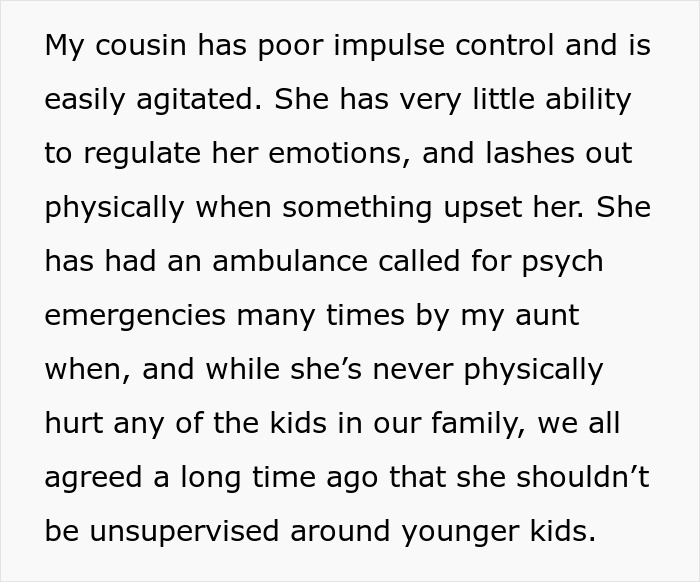
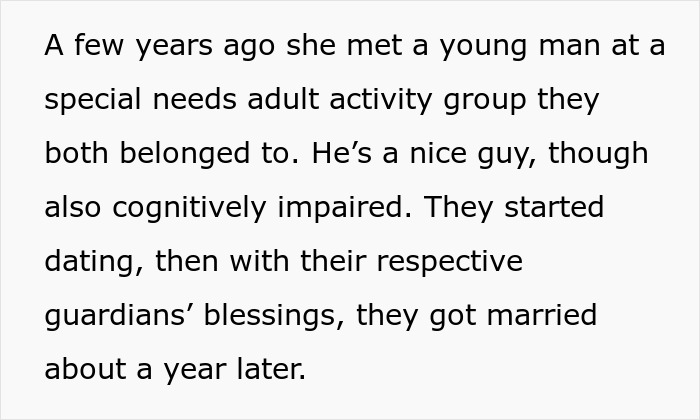
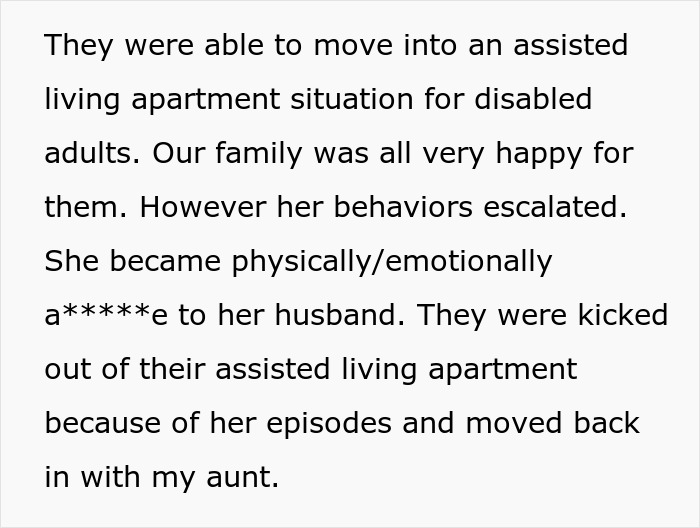
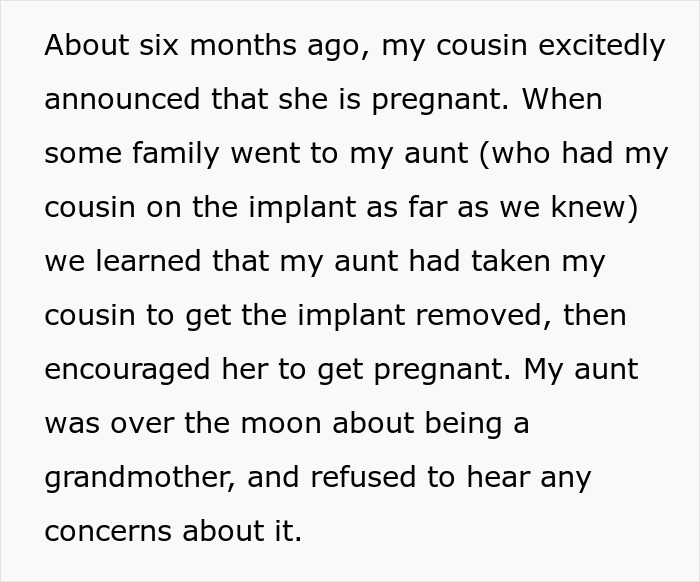
Image credits: Ok_Home_4106

Image credits: user28856488 / Freepik (not the actual photo)
The couple lived in assisted-living apartments for disabled adults but were forced to move back with the aunt due to the cousin’s escalating behavioral issues
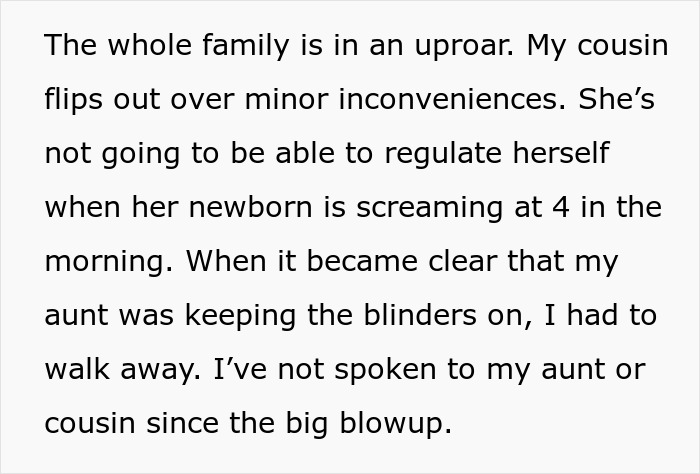
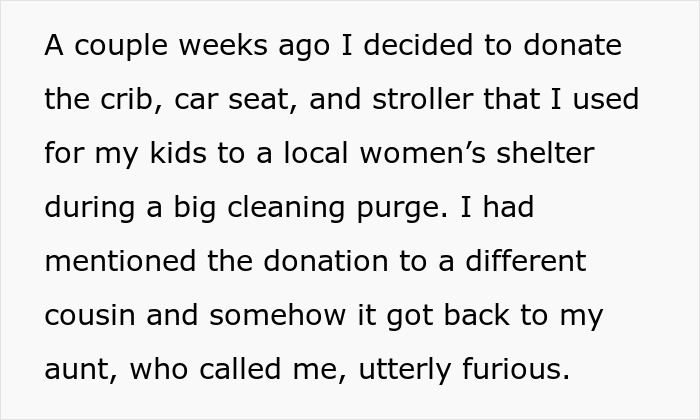
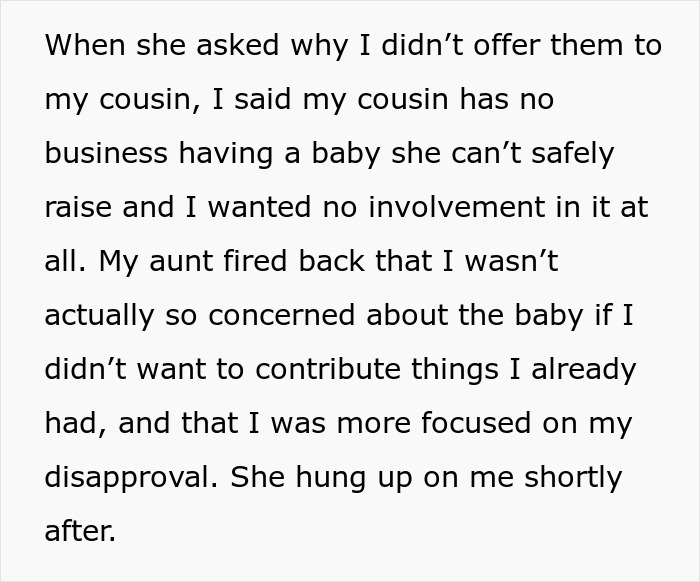
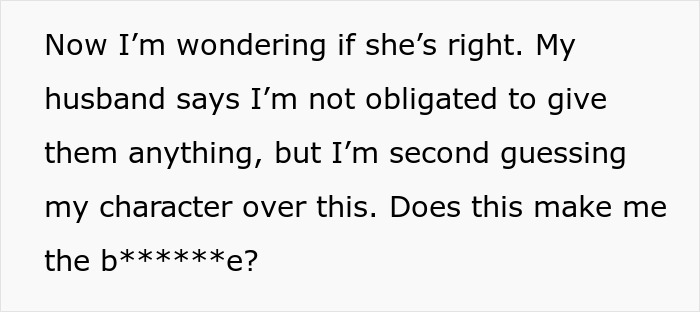
Image credits: Ok_Home_4106
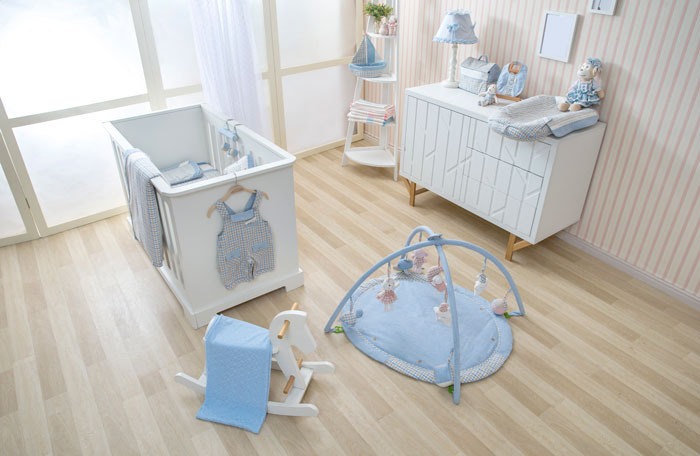
Image credits: xiaojiang / Freepik (not the actual photo)
Six months ago, the cousin became pregnant after her mother removed her contraceptive implant and encouraged the pregnancy, despite family concerns about her ability to parent


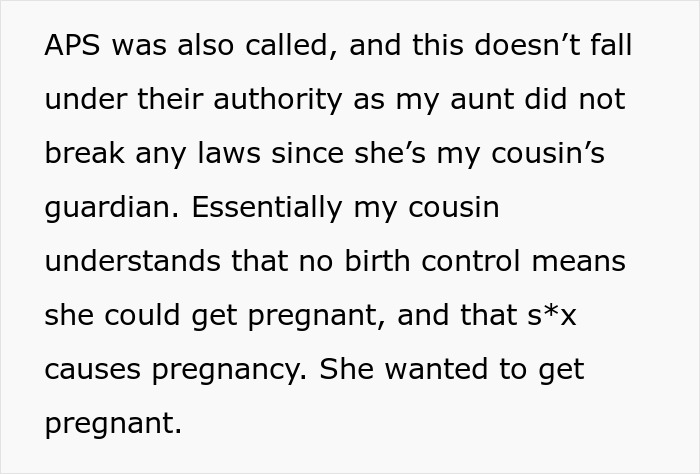

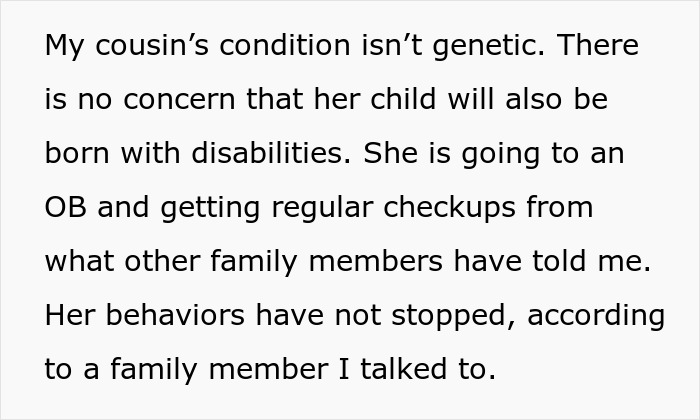
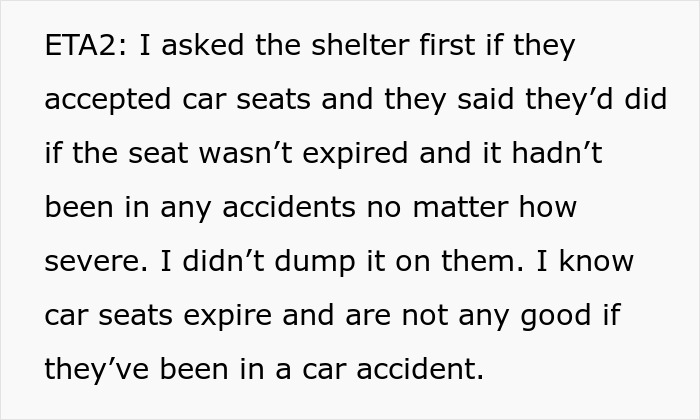
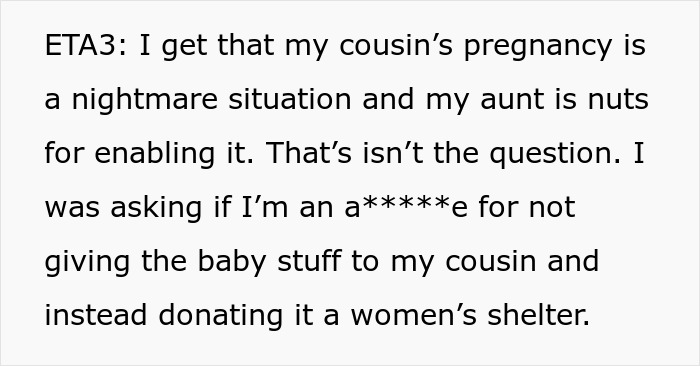
Image credits: Ok_Home_4106
When the author donated her old baby items to a women’s shelter, it led to a heated confrontation with her aunt, who criticized her for not giving them to the cousin
The OP noted that her cousin, adopted at birth, has lived her entire life with a cognitive disability. Her development is around that of a 10-year-old, and she struggles with impulse control and emotional regulation. Family members had even long agreed she shouldn’t be left alone with young children because of her history of lashing out when upset.
Despite this, her life seemed to turn around when she met and married another cognitively impaired man through a support group. Unfortunately, her behavior didn’t stabilize. Reports of physical and emotional maltreatment toward her husband escalated, leading to their eviction from assisted living.
They had no choice but to move back in with the her mother who has always been her fiercest protector. Six months ago, the cousin got pregnant and what shocked the family most wasn’t the news itself, but the revelation that her mother had actively supported the pregnancy by removing the cousin’s contraceptive implant and was celebrating the idea of becoming a grandmother.
Concerns over how the cousin could possibly handle a newborn went unheard. The aunt brushed off every protest, focusing only on her excitement. Meanwhile, the OP decided to do something kind by donating her old baby items to a local women’s shelter. Somehow the news made its way back to her aunt, who erupted in anger and asked why she hadn’t offered those things to her cousin instead.
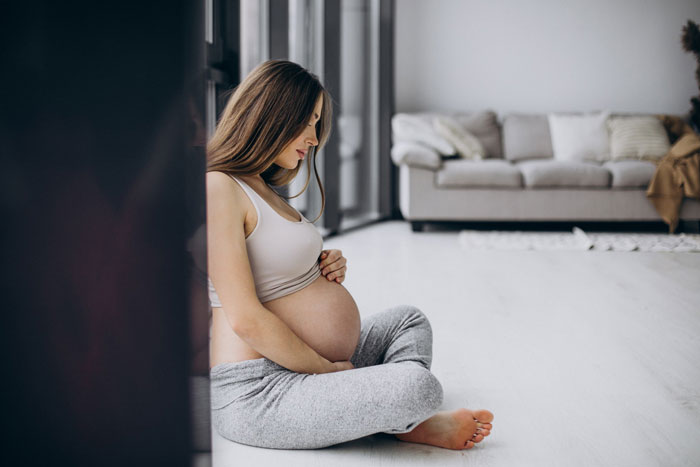
Image credits: senivpetro / Freepik (not the actual photo)
Advanced Disability Services note that parenting with disabilities can involve a unique set of challenges, citing that financial pressures may be greater, and that intellectual or cognitive difficulties may also affect planning and problem-solving, while gaps in medical knowledge may make managing health needs for both parent and child harder.
Additionally, parents with disabilities often face societal stigma and misunderstanding, but Neuro Nav emphasizes that having a disability does not prevent someone from being a parent. They state that what truly determines parenting success is how challenges are managed, rather than the presence of a disability itself.
However, Gidget Foundation builds on this by highlighting that the impact of disability on parenting varies widely depending on the type and severity of the condition. Parents with severe cognitive impairments face different challenges than those with moderate physical limitations or mild psychiatric conditions, making it difficult to generalize about parenting ability.
Because of this diversity, decisions about supporting parents with disabilities must be made carefully and with full awareness of the individual circumstances. They emphasize that informed decision-making is essential to balance the parent’s rights and capabilities with the child’s safety and well-being, ensuring that each family receives the guidance and support appropriate to their unique situation.
Netizens agreed that the OP’s cousin is not capable of safely raising a child and suggested contacting child welfare services, though some clarified that agencies like CPS can only intervene once the baby is born and in danger. Others reassured the OP that she was right to set boundaries, emphasizing that she is under no obligation to provide baby items.
What do you think about this situation? Do you think the OP was right to donate the baby items elsewhere, or should she have given them to her cousin despite her concerns? We would love to know your thoughts!
Netizens insisted that since the author’s cousin wouldn’t be able to safely raise a child, it might be best to contact child welfare services

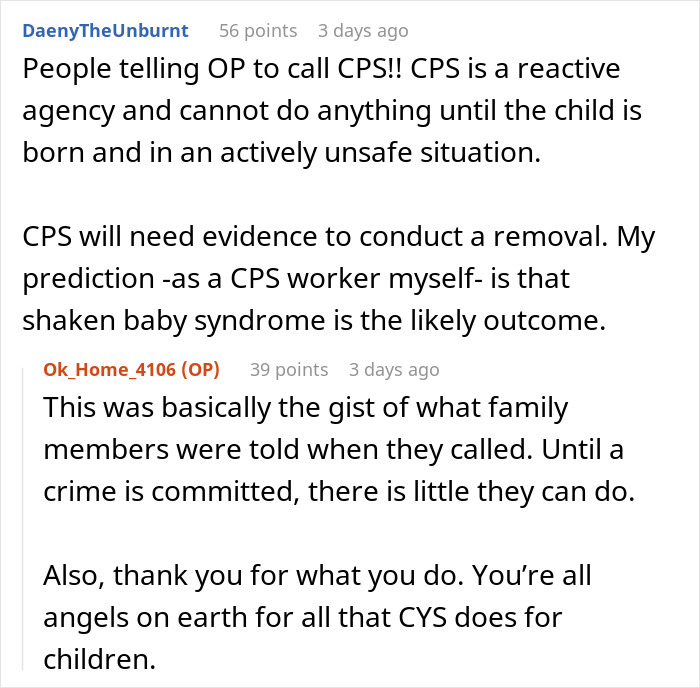
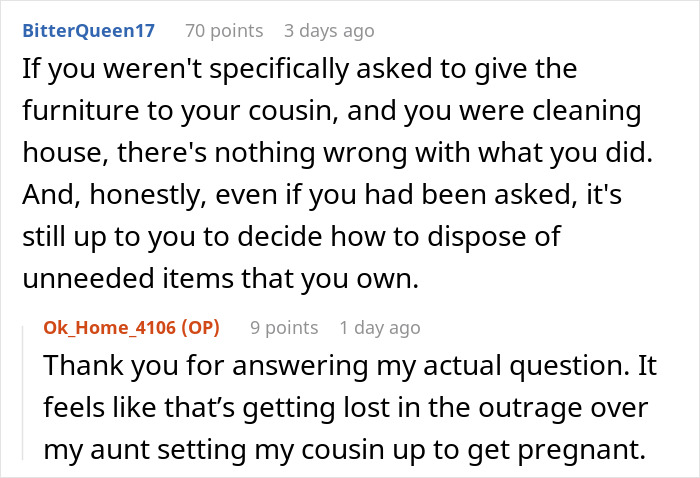

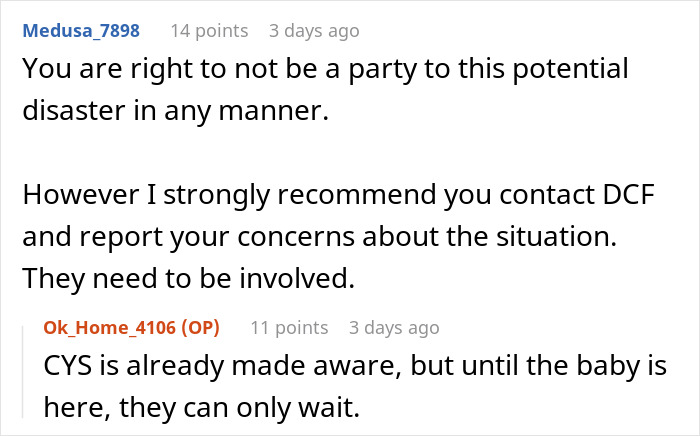
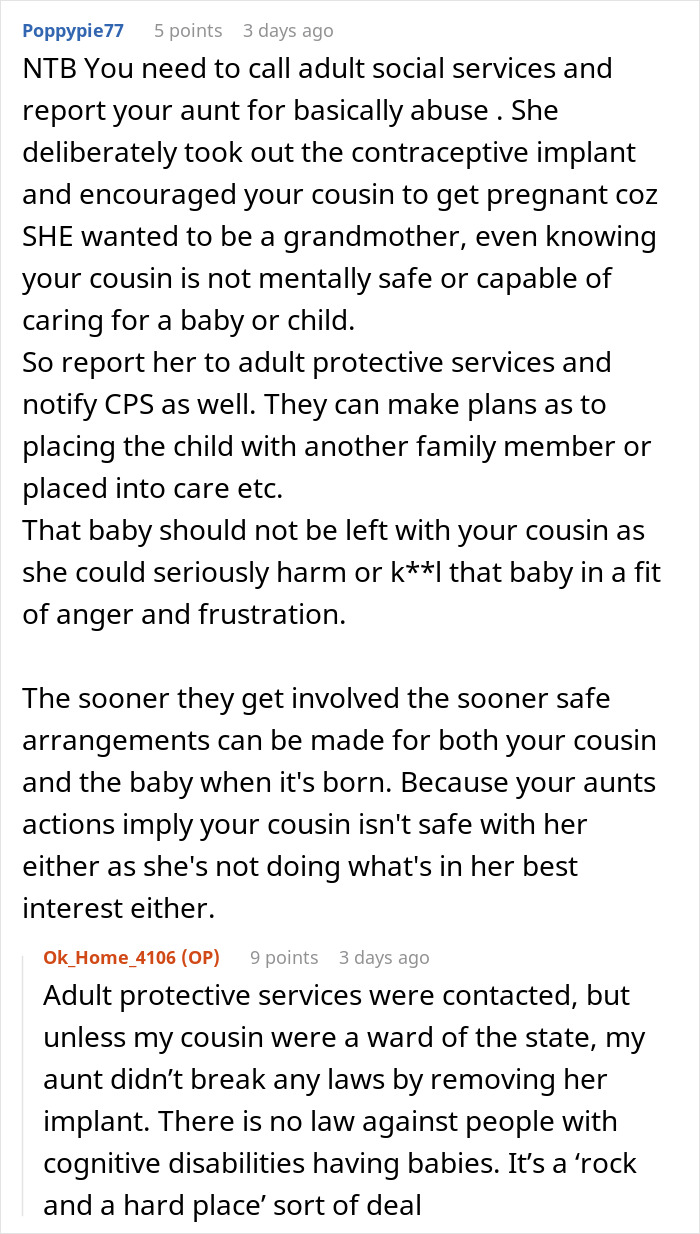


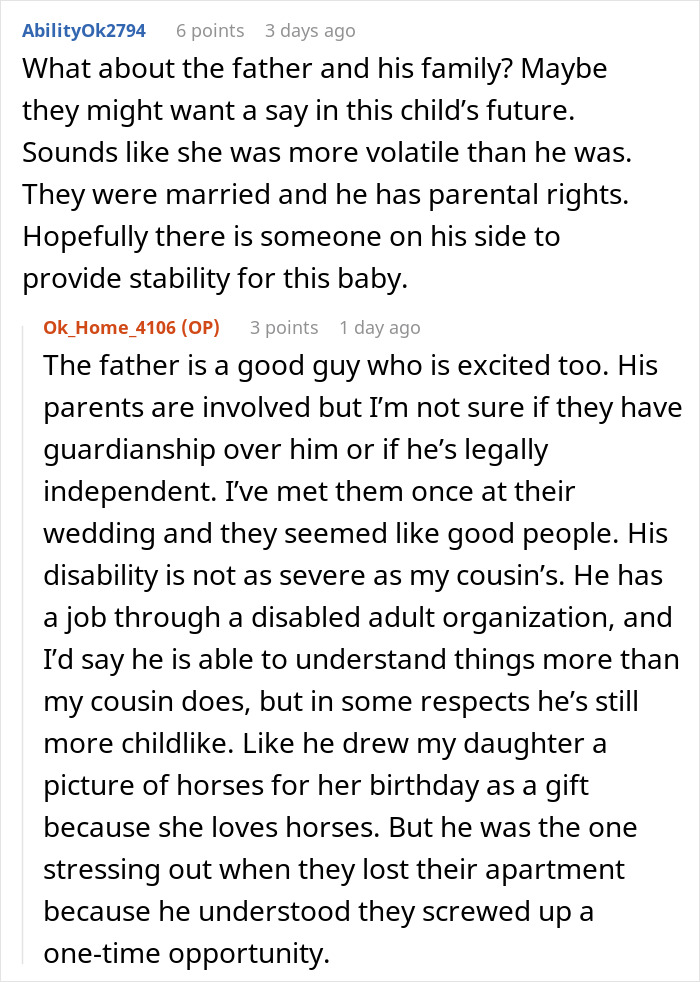

 Follow Us
Follow Us





